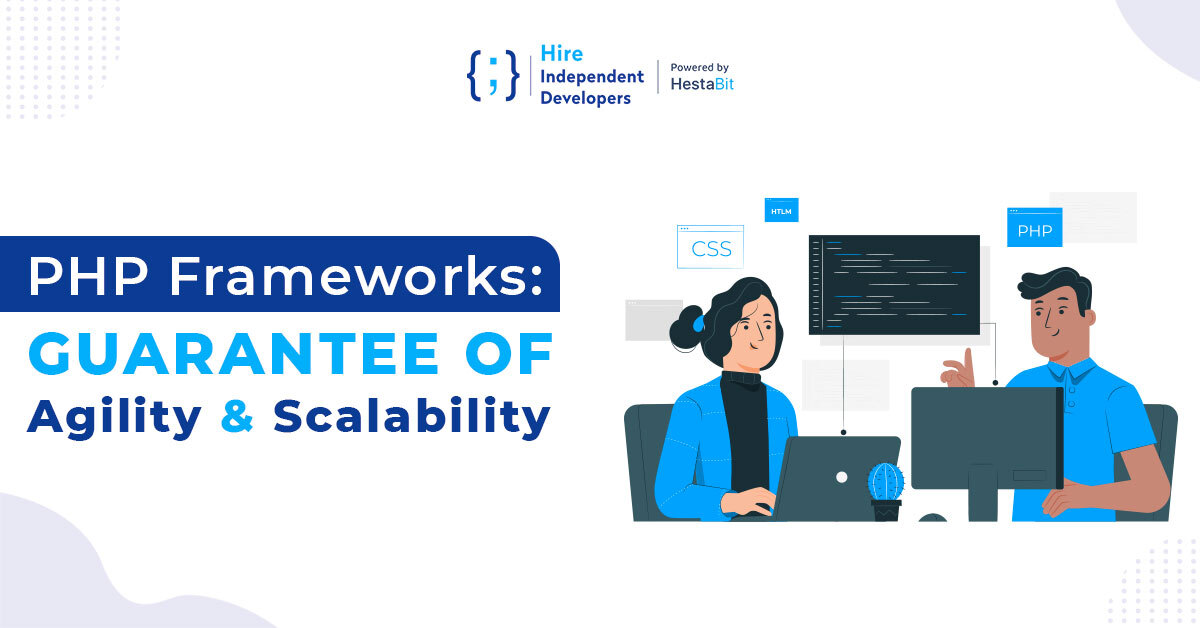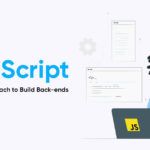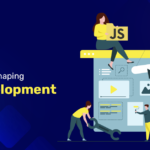PHP is well-known to all; it is one of the most praised scripting languages of all time.
It is also known as “general-purpose programming language.” Moreover, It is mostly popular for its PHP frameworks primarily used in developing websites and apps.
Rasmus Lerdorf created PHP in 1994, and its functioning was so smooth and easy to apply that, in no time, it gained massive popularity among the developers.
Many prestigious companies started to base their PHP websites, making them an integral part of their application.
Currently, around 79% of all the world’s websites have included PHP in their tech stacks. Some of the most reputed ones are Facebook, Yahoo, WordPress, Wikipedia, and Tumblr.
PHP has proved to lessen the burden of a developer in integrating outstanding features to your website, enhancing its online presence.
The language has made available some of the best PHP frameworks to the web development world.
These frameworks provide code reusability. Hence the PHP developer can refrain from creating complex and lengthy codes again and again.
The open-source nature of the PHP frameworks adds up to their efficiency.
They are responsible for providing a basic structure that aligns the website’s development, boosting the development process, giving it an unmatchable speed.
Not just that, PHP is capable of fulfilling all the performance needs of businesses since it is super efficient in developing websites and applications excellent in terms of responsiveness.
So it is apparent that nothing can stop PHP from advancing towards gaining even massive popularity in the coming time.
However, it is recommended for you to look for PHP programmers for hire if you wish to integrate all the latest features into your website.
Below we’ll discuss the best frameworks for PHP that are worthy of your next project.
What Is a PHP Framework?
A PHP framework is a platform that is used to create PHP web applications. These frameworks provide code libraries for most commonly used functions, cutting down on the amount of original code you require to write.
PHP frameworks become the customary practice in the development process as they take care of the repetitive and mundane aspects of coding. Using this will significantly reduce the possibility of errors that can cause a breakdown.
Why Use PHP Frameworks for Web Development?
There are endless reasons to use the PHP framework in your project. Some of them are mentioned below:
Faster development
PHP frameworks have built-in tools and libraries that automatically save your development cost. For Instance, the CakePHP framework contains the Bake command-line tool that creates any skeleton code needed in the application.
Less code to write
Using features that are built-in to the framework will reduce the need to rewrite codes.
Libraries for common tasks
Some tasks that can be done within the libraries are easily asserted in PHP. Tasks like data sanitization, CRUD operations, and form validation are common in developing web apps, where we can use PHP’s functions that are part of the framework.
Security
Using a PHP framework might minimize the chance of hacker exploits. Reliable frameworks have data sanitization built-in end defenses against common threats.
Easy maintenance
PHP frameworks facilitate DRY ( Don’t Repeat Yourself) development and refactoring of code. The resulting codes will need less maintenance so that you do not have to worry about managing the core framework after every step.
What Are the Best PHP Frameworks in 2021?
- Laravel
- CakePHP
- Symfony
- CodeIgniter
- Zend
- Yii Framework
- Phalcon
- Slim
- FuelPHP
- Fat-Free Framework (F3)
So let’s dig in!
Laravel:
Laravel is considered to be one of the best PHP frameworks out there.
Although it was introduced in 2011, not that long ago, it quickly gained massive popularity in the technological world owing majorly to its open-source nature. Laravel can efficiently facilitate complex web development securely and at a higher pace than other frameworks.
Laravel simplifies the web development process, thanks to its ability to ease tasks like caching, sessions, routing, and authentication.
Why use Laravel Framework?
- If you require an application with complex backend needs, then there’s nothing better than Laravel. It caters to all sizes of applications, be it small or large. Thanks to homestead, Laravel can be easily installed.
- Features provided by Laravel are unrivalled; they provide the developer with the option of customization. So your web development will go the way you decide. Laravel has brilliant features like the view template engine, excellent MVC support, routing and authentication, seamless data migration, and many more.
- The Laravel framework is very expressive. It is built to cater to meet the expectations for rapidly evolving web apps. So if you need your website to develop as the trend develops, Laravel must be your top choice.
CakePHP:
Simplicity and elegance pave the way to your target audience. A website that is merely beautiful will hold the attention of your audience for a longer duration and would make them want to get back.
Aesthetics matters a lot, which is why CakePHP is believed to be a significant framework in the list of top PHP frameworks. It provides you with a visually attractive and feature-loaded website.
In addition, you can hire a novice developer to fabricate your website since CakePHP is not as complicated as other frameworks are. Hence, it can be quickly learned thanks to its CRUD (create, read, update, and delete) framework.
CakePHP has been in use since it was launched in the 2000s, and it has only evolved to become better since then.
What Use CakePHP ?
- The framework is uncomplicated and easy to install. All you need is a web server and a copy of the framework.
- If you are planning on developing commercial applications, there could be no match for CakePHP. It has noteworthy security features like SQL injection prevention, cross-site request forgery protection, input validation, and cross-site scripting protection.
- The features that make CakePHP as impressive as it is are fast builds, validation, modern framework, and security. Not just that, it provides incredible documentation, numerous support portals, and premium support.
Symfony:
Symfony was first launched in 2005. Since it is relatively older than other frameworks, it can be considered more mature and reliable in terms of web development.
The name “Symfony” is known to even a fresher due to its immense popularity and reputation in the web development world.
The framework, too, is considered one of the best PHP frameworks to work on.
Symfony is an extensive PHP MVC framework and is the only framework that follows the web standards and PHP, invariably.
Why Use Symfony ?
- An enterprise application goes best with Symfony. No framework is as capable as Symfony when it comes to developing large-scale enterprise applications. Installation and configuration of Symfony on almost all platforms is a cakewalk.
- One of the most outstanding features Symfony brings forth is its reusable components. Symfony allows a developer to create an independent database engine. The framework complies with almost all of the best design patterns and web development practices. Also, integration with various vendor libraries is possible with Symfony.
- The framework is stable and amazingly flexible. The flexibility it has allows it to be integrated with more significant projects like Drupal.
Symfony and Laravel share many similarities, often putting developers at a tight spot in choosing between the two.
However, it is crucial to understand that Laravel emphasizes on delivering value and simplicity, so even a novice developer can make efforts and learn Laravel in minimum time.
Whereas Symfony is a bit hard to start with, and its security mechanism is also a bit harder to understand. Hence for Symfony, you will have to hire a PHP developer.
CodeIgniter:
Codeigniter is the real example of “less is more.” Don’t worry; there’s nothing you’ll compromise on while using CodeIgniter. You generate small footprints.
Almost about the size of 2 MB, including all the documentation.
It is a suitable framework for developing websites that are advanced and dynamic.
The framework allows the developer to access numerous pre-built modules that have been proved beneficial for developing reusable and robust components.
Why Use Codeigniter ?
- The framework is easy to install in comparison with other frameworks. It is lightweight and straightforward. Its installation process is pretty simple, and the documentation is well-illustrated. Hence it becomes easier for a developer to understand and learn it in minimum time. So even a beginner can grasp the functionalities and techniques quickly, with, of course, some extra efforts.
- CodeIgniter offers various significant features like the MVC architecture, inbuilt security tools, top-notch error handling, and excellent documentation, making it even better to develop scalable applications.
- Web development with CodeIgniter is relatively faster than other frameworks. The technology developed with CodeIgniter will definitely be reliable and efficient in building applications that are lightweight and can run on modest servers.
Zend Framework:
Zend is another framework that has reached great heights in the competition of the best PHP frameworks. It is entirely object-oriented, and features such as inheritances and interfaces make it even more extendable.
It is built on agile methodology, enabling a developer to deliver high-quality applications to even the biggest of enterprise clients.
The framework is highly customizable, hence can be altered as per your needs. Also, it strictly abides by all PHP best practices. Thus it is the best framework for developers who wish to add project-specific functionalities to their applications.
Why Use Zend?
- Zend is the best fit for developing complex, enterprise-level applications. This framework is popularly used for creating large IT applications or banking websites.
- Some features contributing to the framework’s popularity include simple cloud API, session management, MVC components, and data encryption.
- Zend allows you to use all the elements you want by integrating external libraries. The framework enjoys a robust community base and excellent documentation. However, developing a mobile application needs a lot of knowledge and experience with Zend.
Yii (Framework)

Yii is an efficient PHP framework that is fast and secure. The term Yii stands for “simple and revolutionary” in Chinese. It is flexible yet pragmatic and works right out of the box. Yii was launched in 2008 as an object-oriented component-based MVC PHP web application framework. This framework includes a repository of user-contributed extensions. It also contains a collection of official documentation like tutorials for developing a simple web application.
Why Use Yii?
- You can easily get running with Yii within minutes. It comes with easy-to-follow documentation. Yii framework has specific security measures like bcrypt password hashing, authentication, encryption, and authorization.
- The documentation provides best practices to prevent SQL injection, CSRF attacks, and XSS.
- Its Gii code generator can build skeleton code for you in no time. Yii also supports four kinds of caching to speed up web applications: fragment caching, page caching, HTTP caching and data caching.
- You can even run third-party codes with Yii. Enterprises like YMCA, Pastebin, Crowdcube, and WordCounter use Yii for their frameworks.
Slim

Slim is an agile, stripped-down micro PHP framework that Josh Lockhart created in September 2010. It concentrates on receiving an HTTP request, invoking every call request, and returning the HTTP response. Slim supports middlewares, encrypted cookies, body parser, page templates, routers, and many more like other PHP frameworks.
Why Use Slim?
- The codebase of Slim is lean since it has no third-party dependencies. This results in faster development and quick performance.
- Slim is ideally suited for building APIs and small apps. If you expect more from the framework, it integrates well with both first-party and third-party components.
- Slim is easy to understand and learn as well. In fact, on a slant comparison site, Slim is rated to be the best PHP framework by developers.
- Enterprises such as CG Forge, Betterplace Academy, and Top webcomics use Slim as their framework.
Phalcon

Phalcon is a PHP framework specially designed for speed. It is delivered in the form of a web server extension, written in C and Zephir. Phalcon has a unique architecture that enables the framework to always be memory resistant, where it offers functionalities without expensive file stats whenever needed.
Why Use Phalcon?
- Phalcon has a high-end performance since it is built to run fast in PHP web development. Code in Phalcon is compiled rather than interpreted, so it automatically deprives speed.
- The framework’s security component helps with CSRF protection and password hashing. The templating engine of Phalcon, Volt is extremely fast too and comes along with helper classes for creating views only.
- You can easily seek support for this framework via forums, documentation, and multiple social media platforms.
FuelPHP

FuelPHP was started by Dan Horrigan in late 2010. It has a different approach to other frameworks and strives to be community-driven with over 300 developers over its lifetime. PHP facilitates the power of the command line through a utility called “Oil.” It is specifically designed to help speed up the development. It has a lightweight ORM model along with a flexible URI routing system.
Why Use FuelPHP?
- FuelPHP runs on MVC but also facilitates HMVC (Hierarchical Model View Controller).
- This adds another protection layer between the Controller and the View. You can also choose the file and folder structure required for your project.
- FuelPHP architecture is based on the idea of modularity, where the applications can be divided into modules, and each component can be replaced without rewriting a single line of code.
Fat-Free Framework

The fat-free framework is an open-source framework hosted by Github and Sourceforge. PHP developers commonly refer to it as an F3 framework. Fat-free is a micro framework that focuses on striking a balance between useful features, ease of use, simplicity, and speed.
Why Use Fat-Free?
- F3 is superfast since its codebase is around 65Kb. There is no need to use Curl, Composer, or dependency injector to get started with this framework.
- Almost all the elements of this framework are modular; therefore, you can easily use the parts you need for building your web application. Even the documentation in F3 is easy to follow.
- Enterprises such as Baker Online, Andiamo, and PC Specs prefer the F3 framework over other frameworks.
Which PHP Framework Should You choose?
PHP is an excellent platform for facilitating a more straightforward development process and lessening your developer’s workload. Each framework has different strengths and weaknesses and varies in terms of community, documentation, and databases.
As such, the framework that could prove to be the best for your technology mainly depends on the following factors: security, scalability, ease of use, and documentation.
Parting Thoughts:
PHP is the doorway to opportunities. Excellent features can be implemented in your web application when you base it on PHP. All the frameworks mentioned above can offer you superior functionality and benefits concerning the underlying concepts behind them, such as architecture, database, ORMs, etc. However, whichever the case is, choosing PHP frameworks in web application development is a smart choice.
The framework you need for your application depends majorly on your requirements of the features you want to incorporate into fabricating an app that is best for the rest.





